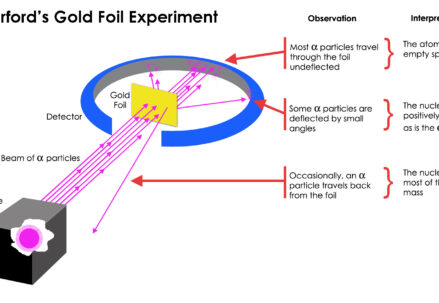“Immerse yourself in what intrigues you the most in the wildest, unorthodox, and innovative ways conceivable.” This quote splendidly encapsulates the essence of Richard Feynman’s unique approach to life and learning. Known for being one of the most vibrant physicists in history, Feynman demonstrated that infusing passion into your chosen profession can lead to remarkable outcomes.
Feynman was born in 1918 in the bustling city of New York. Despite the trials of being a late-talking child, his yearning for invention was clear from the beginning. His childhood was marked by inquisitiveness and self-guided learning. He had already mastered advanced mathematical concepts like infinite series, trigonometry, analytical geometry, and calculus before even setting foot in college. At the tender age of 15, he started using his own mathematical notations, displaying an innovative mind early on.
Feynman’s Contribution to Science and Warfare
Feynman’s brilliance transcended the realms of academia, landing him a significant role in World War II. He joined hands with fellow scientist Bethe to craft a formula capable of determining the yield of a fission bomb, thus impacting the development of the nuclear bomb.
Nonetheless, Feynman’s most enduring contribution to the scientific community remains his uniquely devised diagrams, now known as Feynman diagrams. Initially created as a tool for his complicated calculations, these diagrams have metamorphosed into the fundamental framework of particle physics, simplifying it and making it more accessible.
Feynman’s Influence in Education
Feynman was not just a scientific and mathematical genius. He had a knack for teaching complex concepts in an understandable manner, making him an exceptional educator. The Feynman Technique encapsulates his unique method of deep learning and application. This approach encourages learners to study a concept in depth, simplifying it until they can easily explain it to others.
His love for science and teaching coalesced into the creation of “The Feynman Lectures on Physics,” a three-volume set that distils the essential principles of physics, making it one of the must-read resources for anyone keen on understanding the subject.
Enlightening Quotes from Richard Feynman: A Deep Dive into the Mind of a Genius
Discover the captivating insights of Richard Feynman, one of the most vivacious physicists in history, through some of his most cherished quotes. These quotes not only capture his innovative approach to life and learning but also provide a window into the profound and pragmatic wisdom he bestowed upon us.
Feynman on Passion and Exploration
- “Embrace an activity that captivates you; dedicate yourself to it! Understanding the essence of life continues to baffle us all, but that is inconsequential. Let your curiosity roam free, exploring the vast world around you. The deeper your immersion, the more fascinating things become. Pour your energy into the things you love most ardently. Forget what you aspire to become; instead, determine what you seek to accomplish. Maintain a balance so that societal norms do not deter you.”
Feynman on Individual Expectations and Conviction
- “You bear no obligation to conform to others’ expectations of you. I am not answerable to be the person they anticipate me to be. Their misconceptions are their errors, not my failures.”;
- “Every time you find yourself thinking, ‘I could do that, but I won’t,’ it’s merely another way of admitting that you can’t.”
Feynman on Science and Reality
- “Perceiving science as absolute is your fallacy.”;
- “A ‘paradox’ only arises when there’s a collision between actuality and your preconceived notion of what the truth ‘should be’.”;
- “A hysterical figure would be the number of stars in the galaxy, approximately 10^11. Considered a gigantic number once, it’s merely a hundred billion— smaller than the national deficit! What we labeled astronomical numbers should now be termed economical numbers.”
Feynman on Time, Learning and Knowledge
- “We are at the dawn of the human race era. Wrestling with problems is not irrational. With thousands of future years awaiting, our duty is to do our best, learn as much as we can, polish the solutions, and pass them along.”;
- “I am perplexed by people who don’t learn through understanding but via other less robust methods like rote learning—resulting in delicate knowledge!”;
- “I would rather grapple with unanswerable questions than settle for unquestionable answers.”
Feynman on Universe and Religion
- “This enormously diverse universe with vast space-time range, various species, planets, and moving atoms seems too complex to merely serve as a stage for God to observe the human struggle between good and evil, as portrayed by religion. The theatre is too grand for such a limited drama.”;
- “The primary principle is not to deceive yourself as you’re the easiest person to delude.”;
- “I represent a cosmos of atoms and, simultaneously, an atom in the cosmos.”
Feynman on Learning and Science
- “Immerse yourself in what intrigues you the most in the wildest, unorthodox, and innovative ways conceivable.”;
- “Poets argue that science detracts from the beauty of the stars, reducing them to mere gas globules. I, too, can witness the starry spectacle on a desert night and appreciate it. But does my understanding limit or enhance my perception?”;
- “Crafting a system to supersede Newton’s laws was a lengthy process due to the peculiar phenomena at the atomic scale. One needed to abandon common sense to comprehend the occurrences at the atomic level.”
Ludwig Boltzmann’s Passing and His Impact on Feynman’s Legacy
The passing of Ludwig Boltzmann, a luminary in the realm of statistical mechanics, bears a notable connection to Richard Feynman’s legacy. Boltzmann’s untimely death by suicide in 1906, while grappling with the skepticism and opposition to his ideas, serves as a stark reminder of the challenges faced by pioneering thinkers.
Feynman, who revered Boltzmann’s contributions to science, drew inspiration from his perseverance in the face of adversity. Boltzmann’s work on the foundations of statistical physics laid the groundwork for many of Feynman’s own insights into the behavior of particles and energy.
In essence, Boltzmann’s tragic end serves as a poignant backdrop to Feynman’s journey, highlighting the importance of resilience and unwavering dedication to the pursuit of knowledge, even in the face of skepticism and adversity. It reminds us that the path of a true intellectual is often fraught with challenges, yet it is through their enduring spirit that they leave an indelible mark on the world of science and human understanding.
Conclusion
Richard Feynman’s quotes reflect the boundless wisdom and profound insights of a man who dedicated his life to exploring the universe’s intricate marvels. His teachings continue to inspire millions, fostering a world guided by creativity, passion, and a relentless pursuit of knowledge. Amid life’s complexities and uncertainties, Feynman’s words serve as a beacon, leading us towards a path of endless discovery and transformative learning. He encourages us to see the world, not as it is, but as it could be—a perspective that fuels our curiosity, redefines our understanding, and transforms our reality.





